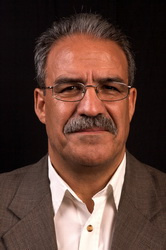The Unequal Weight of US Missile Shield and Iran’s Nuclear Program for Russia
A commentary by Dr.Bahram Amir Ahmadian

In a Tuesday press conference in Madrid, Russian President Dmitri Medvedev stated that it was not constructive to link talks over a US missile defense system in Europe with the perceived security threat from Iran. Bahram Amir Ahmadian, university professor and Russian affairs expert has commented for Iranian Diplomacy:
The deployment of anti-missile shield near Russia’s western borders is a complicated issue twined with this country’s national security. Using Iran’s nuclear program as a card is futile since Europe is also a part of this game and it is not only between US and Russia.
The anti-missile shield is so deep an issue that it leaves impact on all Russia-United States fields of interaction. As an example, despite Russia’s need for foreign investment -which is more crucial even with the current global economic crisis- this country prefers to boost its military capabillity. An insecure air influences both national and foreign investment in Russia.
Anti-missile shield appears to be of grave concern for Russia. Medvedev has drawn a line between Russia-US cooperation to control Iran and deployment of defense shield near its western borders. That’s because Iran’s nuclear story has two separate sections: one related to its nuclear file and one concerned with Bushehr nuclear power plant. This nuclear power plant merely faces technical issues and is not included in the political game, as Russia has also admitted.
However, anti-missile shield directly relates to Russia’s national security and Iran is not a powerful card for US to play in this game, since from a Russian point of view these two are not of the same weight. Moscow knows that in Iran’s nuclear dispute, one side is the 5+1 countries which -apart from Germany- are veto-wielding states but in the case of defense shield its Europe plus United States versus Russia. However, America is exerting a remarkable pressure here.
Apparently, Kremlin is seeking direct negotiations with United States to solve the problem over anti-missile shield since US is the leading handler of the plan. Plus, Europeans do not fully agree with deploying the defense shield in Eastern European countries. The plan would cause them heave costs and since it is some issue related to Eastern -and not Western- Europe strategic sphere, not all European states are willing to invest on it.
Anti-missile Shield for Iran’s Nuclear Program and the Likely Tehran-Washington Negotiations
Tehran has not yet voiced a clear stance on direct talks with America, which is an issue that should be decided by Iran’s National Security Council. As long as the negotiations haven’t started, we can’t judge how weighty the anti-missile shield deployment is. It seems that this is more of a bilateral issue between United States and Russia. Meanwhile, Russia’s decision to deploy Iskander ballstic missiles in Kaliningrad and the global economic crisis have by and large weakened US determination to deploy the anti-missile shield.
The deployment of anti-missile shield near Russia’s western borders is a complicated issue twined with this country’s national security. Using Iran’s nuclear program as a card is futile since Europe is also a part of this game and it is not only between US and Russia.
The anti-missile shield is so deep an issue that it leaves impact on all Russia-United States fields of interaction. As an example, despite Russia’s need for foreign investment -which is more crucial even with the current global economic crisis- this country prefers to boost its military capabillity. An insecure air influences both national and foreign investment in Russia.
Anti-missile shield appears to be of grave concern for Russia. Medvedev has drawn a line between Russia-US cooperation to control Iran and deployment of defense shield near its western borders. That’s because Iran’s nuclear story has two separate sections: one related to its nuclear file and one concerned with Bushehr nuclear power plant. This nuclear power plant merely faces technical issues and is not included in the political game, as Russia has also admitted.
However, anti-missile shield directly relates to Russia’s national security and Iran is not a powerful card for US to play in this game, since from a Russian point of view these two are not of the same weight. Moscow knows that in Iran’s nuclear dispute, one side is the 5+1 countries which -apart from Germany- are veto-wielding states but in the case of defense shield its Europe plus United States versus Russia. However, America is exerting a remarkable pressure here.
Apparently, Kremlin is seeking direct negotiations with United States to solve the problem over anti-missile shield since US is the leading handler of the plan. Plus, Europeans do not fully agree with deploying the defense shield in Eastern European countries. The plan would cause them heave costs and since it is some issue related to Eastern -and not Western- Europe strategic sphere, not all European states are willing to invest on it.
Anti-missile Shield for Iran’s Nuclear Program and the Likely Tehran-Washington Negotiations
Tehran has not yet voiced a clear stance on direct talks with America, which is an issue that should be decided by Iran’s National Security Council. As long as the negotiations haven’t started, we can’t judge how weighty the anti-missile shield deployment is. It seems that this is more of a bilateral issue between United States and Russia. Meanwhile, Russia’s decision to deploy Iskander ballstic missiles in Kaliningrad and the global economic crisis have by and large weakened US determination to deploy the anti-missile shield.

